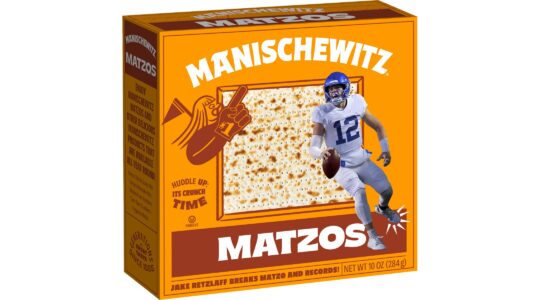MIAMI (JTA) — It was a familiar narrative: Israel, ever the underdog, was down and running out of time. Then, just when it seemed hopeless, they pulled off a thrilling comeback.
It wasn’t Purim, or Passover, or even Hanukkah. It was Team Israel’s opening game in the World Baseball Classic.
Israeli-American pitcher Dean Kremer, a member of the Baltimore Orioles, took the ball for Israel against Nicaragua Sunday in its first game of the World Cup-style tournament. Kremer kept the opposing bats quiet over four innings, striking out four while giving up three hits and one walk.
Nicaragua took the lead in the top of the fifth inning on a double from shortstop Steven Layton, who was then thrown out at third to end the inning.
Down 1-0 in the bottom of the eighth, Israel’s bats came alive at just the right time, first on a line-drive single from Toronto Blue Jays prospect Spencer Horwitz that brought pinch-runner Jakob Goldfarb in to score and tie the game.
Then, with two outs and the bases loaded, Philadelphia Phillies backup catcher Garrett Stubbs, who was playing third base for Israel, lifted the ball to left field for a game-winning ground-rule double, bringing in two runners to make it 3-1.
The entire sequence came against Jonathan Loáisiga, a member of the New York Yankees and Nicaragua’s best pitcher.
“Coming into this, I didn’t know what to really expect, this being my first time playing for Team Israel,” Horwitz said. “It’s living up to everything that people are saying. That environment we were just in was definitely electric.”
While the Nicaraguan fans clearly outnumbered Israel’s contingent in both numbers and volume at loanDepot Park, where the Miami Marlins play, there were Israeli flags flying in the stands. And after key plays for Team Israel, the Israeli pop song “Mahapecha Shel Simcha” (“A Revolution of Joy”) blasted from the speakers.
“Playing for Team Israel, anytime I get to put on that uniform is special for me,” said Kremer, who grew up speaking Hebrew and has spent time living in Israel. “It’s like another home. So every time I get to represent it’s one of the better feelings.”
So how did Israel pull off the game-winning rally?
“I have no idea,” manager Ian Kinsler joked after the game. “I don’t know what happened there.”
He continued: “We put up some good at bats, we were fighting. That’s what I expect of my team, is to play all 27 outs and fight until the end. Today we were lucky enough to be on the right side.”
The victory was crucial for Israel for a number of reasons.
With stiff competition in Pool D — or the “pool of death,” as Stubbs called it — any win Israel can manage is critical. Only two teams will advance to the next round. Israel will play Puerto Rico, the Dominican Republic and Venezuela, in order, over the next three days.
The top four teams (out of five) in each pool will automatically qualify for the 2026 WBC, meaning even if Israel does not advance, finishing anywhere but last will secure a spot in the next tournament, without needing to compete in the qualifying round.
“When you’re playing one game [against each opponent], as opposed to a series, anything can happen,” Kinsler said. “The team understands that. It’s not necessarily the best team that wins the game, it’s the team that plays the best that day. So we have just as good a shot as anybody and we’re gonna give our best shot and try to make things interesting in Pool D.”
One of the ways Israel is giving its all is by being creative on defense. Israel has been alternating its two catchers, Stubbs and veteran Ryan Lavarnway, behind the plate, with the other playing third base — which neither has previously done professionally.
“I think anybody on this team is willing to do whatever we need to win a game in any situation, any position,” Stubbs said after the game. “Obviously, it’s very fresh for me. I’ve never played third base ever in my life, all the way dating back to I don’t know how long, but it’s been a lot of fun.”
So far, it’s worked. But with a formidable Puerto Rico team coming up Monday night, the games will only get harder from here.
JTA has documented Jewish history in real-time for over a century. Keep our journalism strong by joining us in supporting independent, award-winning reporting.





